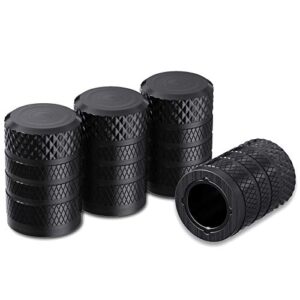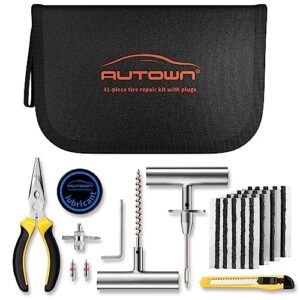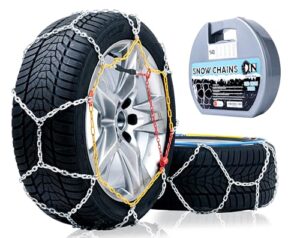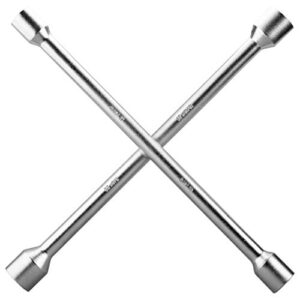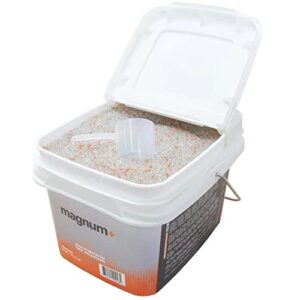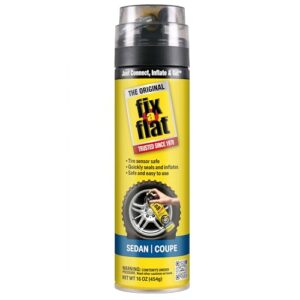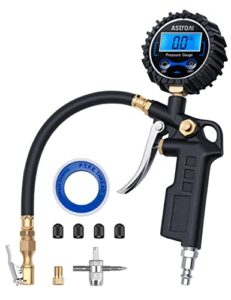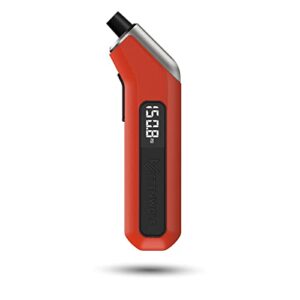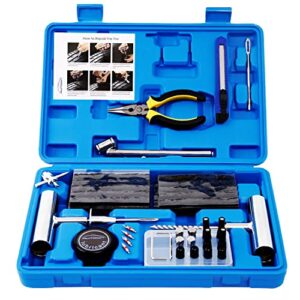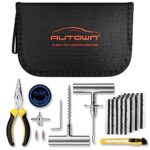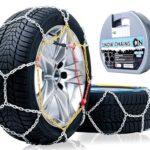Performance tires are specially designed to increase a vehicle’s handling, speed, and overall driving experience. They provide superior grip, responsiveness, and cornering capabilities.
Performance tires cater to driving enthusiasts seeking optimal road performance. These tires feature unique rubber compounds, tread patterns, and construction techniques that maximize traction and stability. Drivers benefit from improved acceleration, braking, and maneuverability, making them perfect for sports cars and high-performance vehicles.
Performance tires often have a lower profile and wider tread, which contribute to their improved road contact and precision. While they typically wear faster and may be less comfortable on rough roads, the trade-off is worthwhile for those valuing superior driving dynamics and safety. Investing in performance tires transforms your driving experience.

Introduction To Performance Tires
Performance tires are designed for high-speed driving. They improve handling and grip. These tires are popular among car enthusiasts. They offer better control on the road. Performance tires are different from regular tires.
What Sets Them Apart?
Performance tires have unique features. They have a special tread pattern. The rubber compound is softer. This helps them grip the road better. They also have a stiffer sidewall. This improves handling at high speeds.
Purpose And Benefits
The main purpose of performance tires is to improve driving experience. They provide better traction. This helps in sharp turns. They also improve braking performance. This makes them safer at high speeds.
| Feature | Benefit |
|---|---|
| Special Tread Pattern | Better road grip |
| Softer Rubber | Improved traction |
| Stiffer Sidewall | Improved handling |
- Better control
- Increased safety
- Smoother ride
Performance tires can transform your driving experience. They make driving more enjoyable. They also make it safer. Choose performance tires for a better ride.
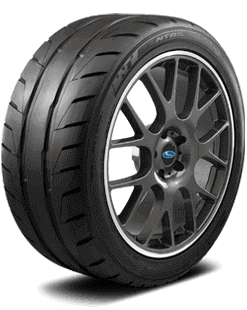
Types Of Performance Tires
Performance tires are designed to increase a vehicle’s handling, braking, and acceleration. They offer superior grip and stability compared to regular tires. There are different types of performance tires, each suited to specific driving conditions. Understanding these types helps you choose the best tire for your needs.
Summer Tires
Summer tires are perfect for warm weather. They provide excellent grip on both dry and wet roads. These tires have a unique tread pattern that maximizes contact with the road. This increases traction and improves handling. Summer tires are made from a softer rubber compound. This allows for better flexibility and performance in higher temperatures.
- Best for dry and wet conditions
- Improved traction and handling
- Soft rubber compound for high temperatures
All-season Tires
All-season tires are versatile. They perform well in a variety of conditions. These tires are designed to provide a balance of performance in different weather. They have a moderate tread depth and rubber compound. This allows them to handle both hot and cold temperatures. All-season tires offer a compromise between summer and winter tires. They are a popular choice for many drivers.
- Good performance in varied conditions
- Moderate tread depth for different weather
- Balanced performance for hot and cold temperatures
Key Features
Performance tires are designed to increase driving dynamics. They offer superior handling, traction, and speed capabilities. Let’s explore their key features that set them apart.
Tread Design
The tread design of performance tires is unique. It typically features larger tread blocks and fewer grooves. This design maximizes the contact area with the road. It improves grip and cornering abilities.
- Larger Tread Blocks: These provide better stability.
- Fewer Grooves: Fewer grooves mean more rubber meets the road.
- Asymmetrical Patterns: These patterns improve performance in both wet and dry conditions.
Rubber Compound
The rubber compound used in performance tires is crucial. It is softer and stickier than standard tires. This compound improves traction and handling.
| Feature | Benefit |
|---|---|
| Softer Rubber | Better grip on the road |
| Stickier Compound | Increased handling and control |
These compounds often include silica. Silica increases wet traction and reduces rolling resistance. This results in better fuel efficiency and performance.
Performance Benefits
Performance tires offer several benefits. They improve your driving experience. These tires are designed for speed and handling. Let’s explore these benefits:
Improved Speed
Performance tires are made with special materials. These materials reduce rolling resistance. This helps your car go faster. The tread patterns are also unique. They provide better grip on the road. This is crucial for high-speed driving.
| Feature | Benefit |
|---|---|
| Reduced Rolling Resistance | Increases Speed |
| Unique Tread Patterns | Better Road Grip |
Improved Handling
Performance tires improve your car’s handling. They are designed for better cornering. This means you can take turns more smoothly. The tires also provide better stability. This is important for safe driving at high speeds.
- Better Cornering
- Increased Stability
- Increased Road Grip
These tires also help in wet conditions. They reduce the risk of hydroplaning. This adds to the safety of your drive.
Choosing The Right Performance Tire
Choosing the right performance tire can increase your vehicle’s handling, safety, and overall driving experience. Not all performance tires are created equal. It’s crucial to select one that meets your specific needs.
Vehicle Compatibility
Your vehicle’s make and model determine the type of performance tire you need. Check the manufacturer’s recommendations. Look for the correct tire size and specifications. Not all performance tires fit every vehicle.
Use a tire size chart to find the right match. Ensure the tire’s load rating and speed rating align with your vehicle’s requirements.
| Vehicle Type | Recommended Tire Type |
|---|---|
| Sedan | All-Season Performance Tires |
| SUV | High-Performance All-Terrain Tires |
| Sports Car | Ultra-High-Performance Tires |
Driving Conditions
Consider the typical driving conditions you face. Different tires perform better in certain environments.
- Dry Conditions: Summer performance tires provide optimal grip and handling.
- Wet Conditions: All-season performance tires offer better traction on wet roads.
- Winter Conditions: Winter performance tires are designed for snow and ice.
Evaluate your driving style. Aggressive drivers may prefer tires with improved cornering ability. Regular city drivers might focus on comfort and noise reduction.
Choosing the right performance tire involves understanding your vehicle and driving conditions. This ensures you get the most out of your investment.
Installation And Maintenance
Performance tires are designed for speed and agility. Proper installation and maintenance are critical. This ensures your tires perform well and last longer.
Proper Installation
Proper installation of performance tires is crucial for optimal performance. Here are some key points to consider:
- Professional Installation: Always have a professional install your performance tires. This ensures they are mounted correctly.
- Alignment: Ensure your wheels are properly aligned. Misaligned wheels can cause uneven tire wear.
- Balancing: Proper balancing of the tires is essential. This prevents vibrations and uneven wear.
Regular Inspection
Regular inspection is essential for maintaining your performance tires. Here are steps to follow:
- Check Tire Pressure: Maintain the correct tire pressure. Under-inflated or over-inflated tires can affect performance.
- Inspect Tread Depth: Ensure the tread depth is within the recommended range. Shallow tread can compromise grip.
- Look for Damage: Regularly inspect tires for cuts, punctures, or bulges. Replace damaged tires immediately.
| Inspection Task | Frequency |
|---|---|
| Check Tire Pressure | Monthly |
| Inspect Tread Depth | Every 6 months |
| Look for Damage | Before long trips |
Popular Brands
Performance tires are essential for car enthusiasts and drivers seeking the best road grip. Several brands stand out in the market, offering top-notch performance and reliability. Here, we explore two of the most popular brands: Michelin and Pirelli.
Michelin
Michelin is a renowned name in the tire industry. Known for their cutting-edge technology, Michelin tires offer superior grip and handling. They are perfect for both everyday driving and high-performance needs.
- Michelin Pilot Sport 4S: Best for sports cars and performance vehicles.
- Michelin Primacy MXM4: Perfect for luxury sedans and smooth rides.
- Michelin Defender T+H: Long-lasting with excellent all-season performance.
Michelin tires are popular for their durability and excellent road feedback. They ensure a safe and comfortable ride in various conditions.
Pirelli
Pirelli is another top brand in the performance tire market. Known for their association with motorsports, Pirelli tires deliver exceptional speed and control.
- Pirelli P Zero: Designed for sports cars, providing unmatched grip and handling.
- Pirelli Cinturato P7: Great for high-performance driving and fuel efficiency.
- Pirelli Scorpion Verde: Perfect for SUVs, offering excellent traction and durability.
Pirelli tires are crafted for those who seek speed and precision. They provide a thrilling driving experience with maximum safety.
Cost Considerations
Performance tires are designed to increase a vehicle’s speed and handling. These tires offer superior grip and stability. But they come with specific cost considerations that every buyer should know.
Initial Investment
Performance tires often require a higher initial investment. This means they cost more upfront than regular tires. The materials used in performance tires are premium. Their design focuses on improving speed, grip, and handling. So, they tend to be more expensive.
Here’s a quick comparison between regular tires and performance tires:
| Aspect | Regular Tires | Performance Tires |
|---|---|---|
| Average Cost | $100 – $150 | $200 – $400 |
| Material Quality | Standard | Premium |
| Design Focus | Basic | Improved Speed & Grip |
Long-term Value
The long-term value of performance tires can be significant. These tires tend to last longer. They provide better mileage and reduce wear and tear on the vehicle. This makes them a wise investment for many drivers.
Key benefits of performance tires include:
- Increased Safety: Better grip reduces the risk of skidding.
- Improved Handling: Easier to control at high speeds.
- Fuel Efficiency: Less rolling resistance saves fuel.
Investing in performance tires can save money in the long run. Reduced maintenance costs and improved fuel efficiency offset the higher initial cost.
Overall, performance tires offer a blend of safety, efficiency, and longevity. They justify their higher price with lasting value and superior performance.

Frequently Asked Questions
What Is The Difference Between A Performance Tire And A Regular Tire?
Performance tires offer superior grip and handling, perfect for high-speed driving. Regular tires prioritize durability and comfort for everyday use.
Are Performance Tires Good For Daily Driving?
Performance tires can be good for daily driving. They offer better handling and grip. However, they may wear out faster and can be noisy. Consider your driving needs and budget before choosing.
Do Performance Tires Wear Out Faster?
Yes, performance tires wear out faster. Their softer rubber compounds provide better grip but reduce durability. Regular checks are essential.
What Are The Pros And Cons Of Performance Tires?
Performance tires offer excellent grip, improved handling, and better responsiveness. They wear out faster, cost more, and perform poorly in extreme weather.
Conclusion
Performance tires offer Improved handling, grip, and speed for your vehicle. They are designed for high performance and safety. Choosing the right performance tires can significantly improve your driving experience. Always consider your driving needs and consult experts for the best options.
Enjoy the benefits of superior performance on the road.





